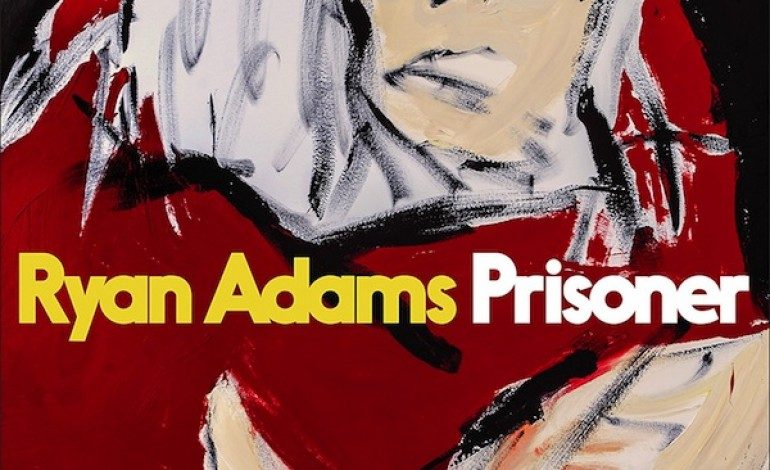

Ryan Adams, as Classic and Resilient as Ever
The witching hour may have come for Ryan Adams, that strange juncture in a successful musician’s career where their celebrity outpaces their creations. One can tell by the headlines, the way his latest album Prisoner is clearly labeled as the breakup album borne of his divorce from singer-actress Mandy Moore, and the way Adams has affirmed it in numerous interviews himself.
It’s a bittersweet time for longtime fans. We should always want to see the artists we admire succeed, but there’s something vulnerable about having artists we have grown attached to thrown into a spotlight. Ryan Adams, for many, is a musician capable of the highest level of attachment, a songwriter who cuts to the quick of emotional turbulence, a rock and roller who can crank it up to aggressively aching heights, a mainstay of Americana who for years has consistently produced impressive records.
On Prisoner, Adams expands his catalog but not his reach, a sign that he is honing and conforming to his strengths. Whereas his past albums of the late ’90s and early 2000s had their own themes (more country, more metal, more folk, more Taylor Swift), Prisoner sounds truly Adams, with melodies, harmonica scales and heartbreaking admissions that could be ripped from anywhere in his discography.
The album opens with droning organ chords, before thundering licks and a classic Ryan Adams chord progression — a little dirty, a little bluesy and perfectly resolved. “Do You Still Love Me” has a retro rock feel, a bit of a late-1970s grit. He continues the straight-up rock sound from the self-titled album he put out in the fall of 2014, but it presents here with more polish and intent. All of the songs are in the unrequited love or broken-hearted vein, with the opening track asking the big questions to lay it all bare.
The reflective sadness continues on the title track, the kind of song that proves Adams’s strengths with metaphor and hooks. “Prisoner” is tale of deep affection and longing, the kind of love that transforms your mind and traps your heart. “I am a prisoner / for your love,” he sings, but a soft echo in the production and jewel-toned lights keep a heavy sentiment from feeling too burdensome. For all that this record sings of heartbreak, the despondency is never paralyzing; there is more movement and wondering than there is simply hollowing or wallowing.
Track three “Doomsday” opens with Cardinals-era harmonica and melodies that sound familiar enough they could’ve showed up on Love is Hell or Easy Tiger. Parts of Adams’s 2014 self-titled also felt this realized, but that record had more mellow moments whereas even Prisoner’s slower and mid-tempo takes command attention. What’s most obvious about Prisoner at moments like these is the way Adams has honed his sound, and his emotions.
Altogether, Adams is not a reckless romantic the way he was when he broke through on Heartbreaker. And even though Prisoner is most definitely a breakup album, the songs are not as altogether depressing as some he put out 10 or 15 years ago (play “Come Pick Me Up” or “La Cienega Just Smiled” for such examples, no matter what state one is in those songs can leave the chest aching). But he is very much restless in his loss of love, and this suits his classic folk rock sound. There’s a swagger to the sadness, a fluidity to the reflection, instead of the vibrant, searing pain that heartbreak in younger years might elicit.
“Haunted House,” a despondent kiss-off to the tangible memories that bind, is one of the most impressive songs, with strong imagery and shaky tambourine. It’s a one-two punch when followed by “Shiver and Shake,” a classic slow burn ode to the physical pains of heartbreak. “I miss you so much / I shiver and I shake,” he sings in a soft, muted tone. It’s one of the prettiest tracks on the album, and one of the most vivid.
Sonically, Adams’s musician company on this band is at a new cohesive level — the playing is as guitar-focused as ever and the organ adds a retro vibe, while the rhythm section finds a groove and sticks to it. “To Be Without You” is perhaps the most heartbroken part of the record, looking at a life that’s changed in ways unrecognizable, accented by hand drums and acoustic guitar. That theme continues on “Anything I Say To You Now,” a louder listen that’s lush with Adams’s signature guitar sound and auxiliary aplenty, showing how locked in their jams can be.
“Outbound Train” begins with a show of Adams’s stripped-bare acoustic talent, steady strumming before breaking out into a jam. Again, the metaphor and imagery come on strong, as well as another revealing, catchy chorus and vibrant guitar solo. There’s an acceptance that arrives near the end of the album, while closer “We Disappear” features some of Adams’s best vocal style choices and lyrical techniques. “Wish I could explain but it hurts to breathe / didn’t fit in my chest so I wore it on my sleeve,” he sings in the final verse, as best a summation of laying out one’s heart on the line as there can be.
No doubt, with what the world knows of his personal life, Adams knew writing Prisoner would be put into a context perhaps far more personal and intimate than he has ever experienced in his career. But the context clues offer little by way of specifics and all in the realm of the universal: the pain, the ache, the trauma of love cast aside. These are the tales Adams has told time and time again in his work, but telling it now, after 16 albums, after a high-profile relationship, shows off his songwriting skill in brilliant fashion. It is the light of authenticity, no matter how dark the soul. It is the maturation of an artist’s musical ability, and his ability to deal.
